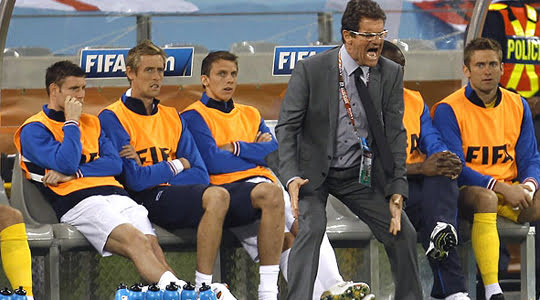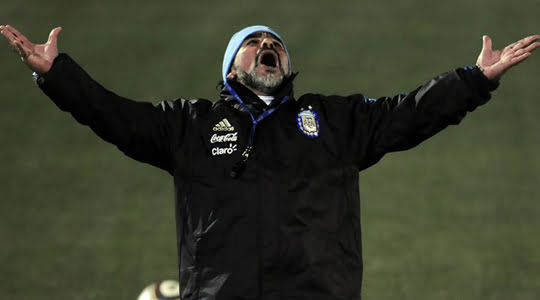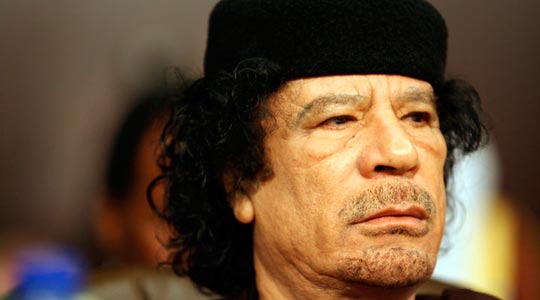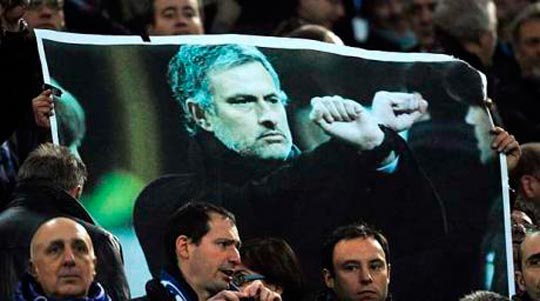Indomitable Lions lose their bite
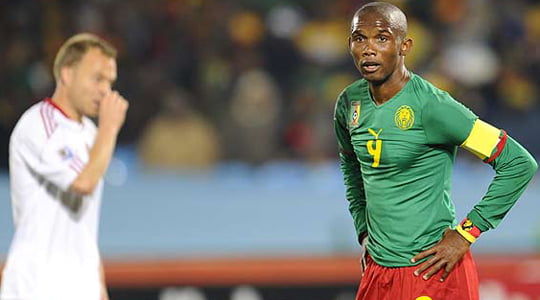
Cameroon manager Paul Le Guen has run a seven-day, 150-mile ultra-marathon across the Moroccan desert – but at the World Cup in South Africa he could not mould a team with anything like the required staying power.
The Indomitable Lions, defeated in their opening game against Japan, became the first side to be knocked out of the tournament when they surrendered a 1-0 lead to lose 2-1 to Denmark in Pretoria on Saturday evening.
“It is really disappointing both for us and the continent of Africa,” said defender Sebastian Bassong afterwards, the Totttenham defender speaking in a virtual whisper.
Bowing out so early was not the in the script for a nation with a proud World Cup history, having qualified for the tournament six times with a best finish of a quarter-final place in 1990. Le Guen himself had described emulating the achievements of 20 years ago as a “reasonable objective”.
It also continued the disappointing form of African teams at this World Cup, with Ghana’s 1-0 win over Serbia the only victory in 11 games so far.
Perhaps Cameroon’s failure is not all that surprising. They have not won a match since their 3-2 win over Zambia at the African Cup of Nations on 17 January, a run that now stretches to nine games, while their only victory at the World Cup since their Roger Milla inspired exploits in 1990 was a 1-0 triumph over Saudi Arabia in 2002.
Yet Cameroon, who will play the Netherlands in their final match in South Africa, did appear to have the personnel to qualify from their group.
Samuel Eto’o is a world class striker, while Pierre Webo and Achille Emana were excellent on Saturday and Alex Song was an assured presence in midfield.
And for the first 15-minutes at Loftus Versfeld it looked as though the homemade poster I saw suggesting ‘a daily Danish dinner is prepared for hungry Lions to eat’ was not too wide of the mark.
The Indomitable Lions started the match with an enthusiasm, desire and incisiveness that suggested they could savage their startled opponents, a point further underlined when a terrible defensive error gifted Eto’o his early goal.
But Cameroon were at least partially at fault for both Denmark goals, with left-back Benoit Assou-Ekotto caught out of position each time. To be fair, he was a little unlucky for the second, caught up the pitch after an attack broke down. Substitute Jean Makoun filled in for him and goalscorer Dennis Rommedahl breezed past him with embarrassing ease.
Having said that, Denmark goalkeeper Thomas Sorensen told me afterwards that he felt Cameroon had too often thrown too many men forward and left too much space in behind for the Danes to exploit.
The African side also squandered several good chances and frequently lost composure in vital areas as the match wore on.
Cameroon had 23 attempts at goal and overall I thought they were slightly unfortunate to lose a magnificent game of football, but to focus solely on Saturday is to fail to grasp the bigger picture and there are obviously serious problems within the camp – with many revolving around the coach.
Le Guen included nine uncapped players in his provisional World Cup squad and, as his selections here in South Africa clearly illustrate, he has not worked out his best team
The coach was criticised by his own players after the defeat against Japan for a team selection that saw playing Eto’o on the right, the inclusion of the inexperienced Eric Maxim Choupo-Moting and Joel Matip and the decision to leave Arsenal midfielder Alex Song on the bench.
Eto’o, who threatened to pull out of the squad before the tournament started after very public criticism from Milla, said in the aftermath of the Japan defeat: “I played where Paul told me to, defending the flank.
“I am the best striker in the history of Cameroonian and African football, but I have to play where the coach tells me to.”
Choupo-Moting and Matip did not feature at all on Saturday, while Eto’o was restored to a more central position with veteran Geremi taking his place on the right side.
Bassong was asked after the match whether there was a problem with the spirit in the squad. He exhaled loudly before answering: “I don’t know. There are a lot of small problems – it was difficult.
“It is a lot of details that made us fail and we have not been at a good level – that is it.”
For the final 20 minutes on Saturday Le Guen was at the edge of his technical area imploring his team to push forward.
After the final whistle the Cameroon substitutes remain seated, not one stood up for several seconds, while their coach went along the line attempting to shake each one’s hand.
The players on the field made their way towards the dressing room quicker than any team I have ever seen. They had disappeared in the blink of an eye.
Quite whether Le Guen disappears from view in Cameroon is anyone’s guess. He only lasted seven months at Glasgow Rangers before he was sacked in January 2007 and his contract at Paris St Germain was not renewed in May 2009.
The Frenchman has insisted that he will not resign from his current post but several seasoned observers of the Indomitable Lions that I spoke to after Saturday’s match suggested that the 46-year-old could pay with his job for his team’s poor run of form.
When he was appointed in July 2009 his subsequent arrival in Yaounde prompted three days of festivities from footballing authorities who felt they had pulled off a major coup. I doubt they feel that way now.
Paul Fletcher
